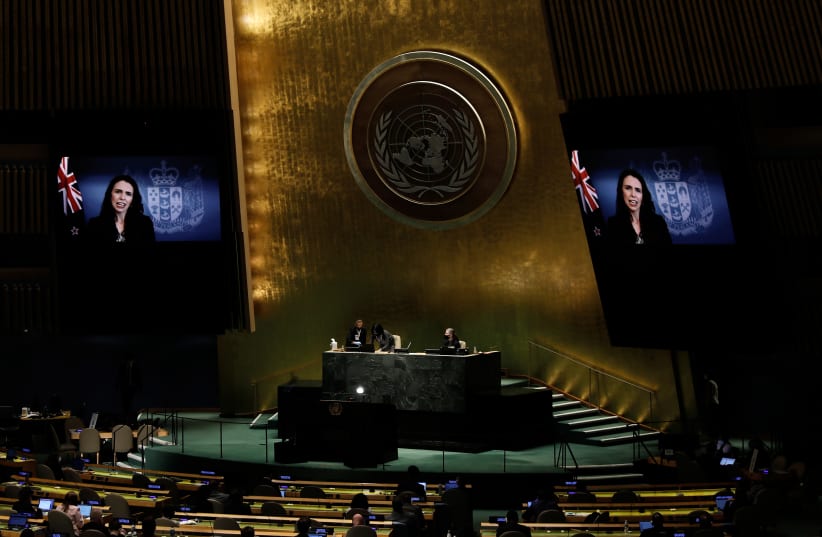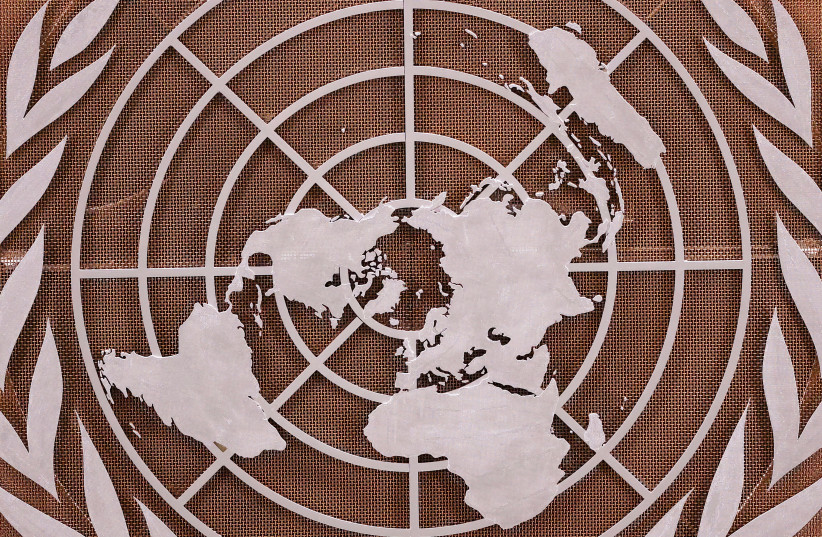The United Nations General Assembly called for an international conference in Moscow to help resolve the Israeli-Palestinian conflict despite Russia's ongoing war against Ukraine which has turned it into an international pariah.
The call was included in a broad-based text called the "peaceful settlement of the question of Palestine" which was approved 154-9, with ten abstentions.
Even Ukraine voted in favor of the resolution.
Overall, the 15-point resolution called for the resumption of Israeli-Palestinian peace talks based on the pre-1967 borders with east Jerusalem as the capital of a Palestinian state and an end to Israeli settlement activity.
Item number three in the text called for "the timely convening of an international conference in Moscow as envisioned by the Security Council in its resolution 1850 (2008) for the advancement and acceleration of the achievement of a just, lasting and comprehensive peace settlement."
Who was in opposition?
The revolution was part of an annual group of sixteen or more pro-Palestinian and anti-Israeli texts, which the UNGA approves every year.
The UNGA passed five of those texts on Wednesday afternoon. The countries that opposed this specific text were: Canada, Hungary, Israel, Liberia, the Marshall Islands, Micronesia, Nauru, Palau and the United States.
Australia, which has historically voted againt the text, chose this year to slightly downgrade its support for Israel at the UN and abstained.
The Australian representative at the meeting said that the shift did not signify a lack of support for Israel.
"Australia shifted from 'no' to 'abstain' on the resolution .. because we believe in a just and enduring two-state solution negotiated between parties," she said.
"We do not support other resolutions considered under this agenda item. Viewing any conflict from only one perspective does nothing to advance the cause of peace "These resolutions divert increasingly strained UN resources and contributed to the disproportionate focus Israel continues to receive in the multi-lateral system," she said.
"Australia wants to see a secure Israel living in peace alongside a viable Palestinian state. Our firm and sincere hope is that Israel and the Palestinians will return to the negotiating table as soon as possible."
With respect to other resolutions in support of the Palestinians, the UNGA voted 101-17, with 53 abstentions to support the continued work of the Committee on the Exercise of the Inalienable Rights of the Palestinian people.
The UNGA voted 149-11, with 13 abstentions to reaffirm that the UN has a "permanent responsibility toward the question of Palestine until the question is resolved in all its aspects in a satisfactory manner in accordance with international legitimacy." The text focuses on the dissemination of information on the Palestinian issue, particularly for journalists.
Included in this year's resolution as the decision to name the UN's training program for Palestinian journalists in honor of Palestinian-American journalist Shireen Abu Akleh, who was killed this year while covering an IDF raid on the outskirts of Jenin. The IDF has said there is a high probability that she was accidentally killed by one of its soldiers.
In addition, the UNGA voted 90-30, with 47 abstentions to commemorate the 75th anniversary of the Nakba, the Palestinian term for the displacement of 750,000 Palestinians as a result of the 1948 war of independence. The UNGA has no plans to similarly mark the displacement of over 800,000 Jews from Arab countries as a result of that war.
Separately, the UNGA also called on Israel to withdraw from the Golan Heights, which it captured from Syria during the 1967 Six-Day War and which it annexed in 1981. To date, only the United States has recognized Israeli sovereignty over the Golan.
The resolution was approved 92-9, with 65 abstentions.
It stated that Israeli sovereignty over the Golan Heights "constitutes a stumbling block in the way of achieving a just, comprehensive and lasting peace in the region.'

